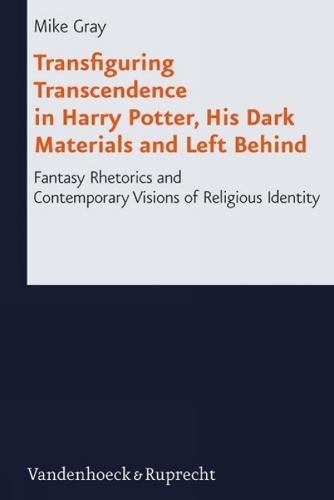Overview
Three recent and commercially successful series of novels employ and adapt the resources of popular fantasy fiction to create visions of religious identity: J.K. Rowlings Harry Potter books, Phillip Pullmans Dark Materials and Tim LaHaye and Jerry Jenkins Left Behind series. The act of creating fantasy counter-worlds naturally involves all three stories in the creation of what Mike Gray terms transfigurations of transcendence: hopeful albeit paradoxical encodings of the ambiguous, non-observable reality whose primary locus in modern society is the societally extra-systemic human individual. Popular fantasy fiction turns out to involve acts of world-creation that are inherently religious and inherently paradoxical.A substantive examination shows that all three are involved in more or less intentional re-narrations of traditional Christian beliefs and narratives. The ""atheist"" His Dark Materials series does not deny but re-imagines the Christian visions of selfhood; the ""traditionalist"" Left Behind series does not simply replicate but modifies its own declared values; the apparent secularity of the Harry Potter series is shaped by its creative reception of Christian patterns and narratives. While the stories visions of selfhood clearly clash, the basic paradoxes involved in their struggle to articulate transcendence expose significant parallels and a productive conversation with the Christian tradition.It is not simply that popular fantasy fiction is theologically relevant the Christian Heilsgeschichte, too, proves to be highly relevant in popular culture. However, while far from obsolescent, models of religious identity in contemporary society require criticism and creativity and, as evinced most powerfully in the Harry Potter stories, a flair for constructive engagement with paradox. Three recent and commercially successful series of novels employ and adapt the resources of popular fantasy fiction to create visions of religious identity: J.K. Rowlings Harry Potter books, Phillip Pullmans Dark Materials and Tim LaHaye and Jerry Jenkins Left Behind series.The act of creating fantasy counter-worlds naturally involves all three stories in the creation of what Mike Gray terms transfigurations of transcendence: hopeful albeit paradoxical encodings of the ambiguous, non-observable reality whose primary locus in modern society is the societally extra-systemic human individual. Popular fantasy fiction turns out to involve acts of world-creation that are inherently religious and inherently paradoxical.A substantive examination shows that all three are involved in more or less intentional re-narrations of traditional Christian beliefs and narratives. The ""atheist"" His Dark Materials series does not deny but re-imagines the Christian visions of selfhood; the ""traditionalist"" Left Behind series does not simply replicate but modifies its own declared values; the apparent secularity of the Harry Potter series is shaped by its creative reception of Christian patterns and narratives. While the stories visions of selfhood clearly clash, the basic paradoxes involved in their struggle to articulate transcendence expose significant parallels and a productive conversation with the Christian tradition.It is not simply that popular fantasy fiction is theologically relevant the Christian Heilsgeschichte, too, proves to be highly relevant in popular culture. However, while far from obsolescent, models of religious identity in contemporary society require criticism and creativity and, as evinced most powerfully in the Harry Potter stories, a flair for constructive engagement with paradox.
Full Product Details
Author: Mike Gray
Publisher: Vandenhoeck & Ruprecht GmbH & Co KG
Imprint: Vandenhoeck & Ruprecht GmbH & Co KG
Volume: 13
Weight: 0.634kg
ISBN: 9783525604472
ISBN 10: 3525604475
Pages: 308
Publication Date: 23 October 2013
Audience:
General/trade
,
General
Format: Hardback
Publisher's Status: Active
Availability: Available To Order

We have confirmation that this item is in stock with the supplier. It will be ordered in for you and dispatched immediately.
Reviews
If readers are interested in doubling their appreciation for the literature of pop culture and how that literature can be investigated for its theological substructure, this tome is indispensably instructive. -- Dr. Jim West, Zwinglius Redivivus
"""If readers are interested in doubling their appreciation for the literature of pop culture and how that literature can be investigated for its theological substructure, this tome is indispensably instructive."" -- Dr. Jim West, Zwinglius Redivivus"
Author Information
Dr. theol. Mike Gray ist Pfarrer in der evangelisch-reformierten Kirchgemeinde Meilen.




